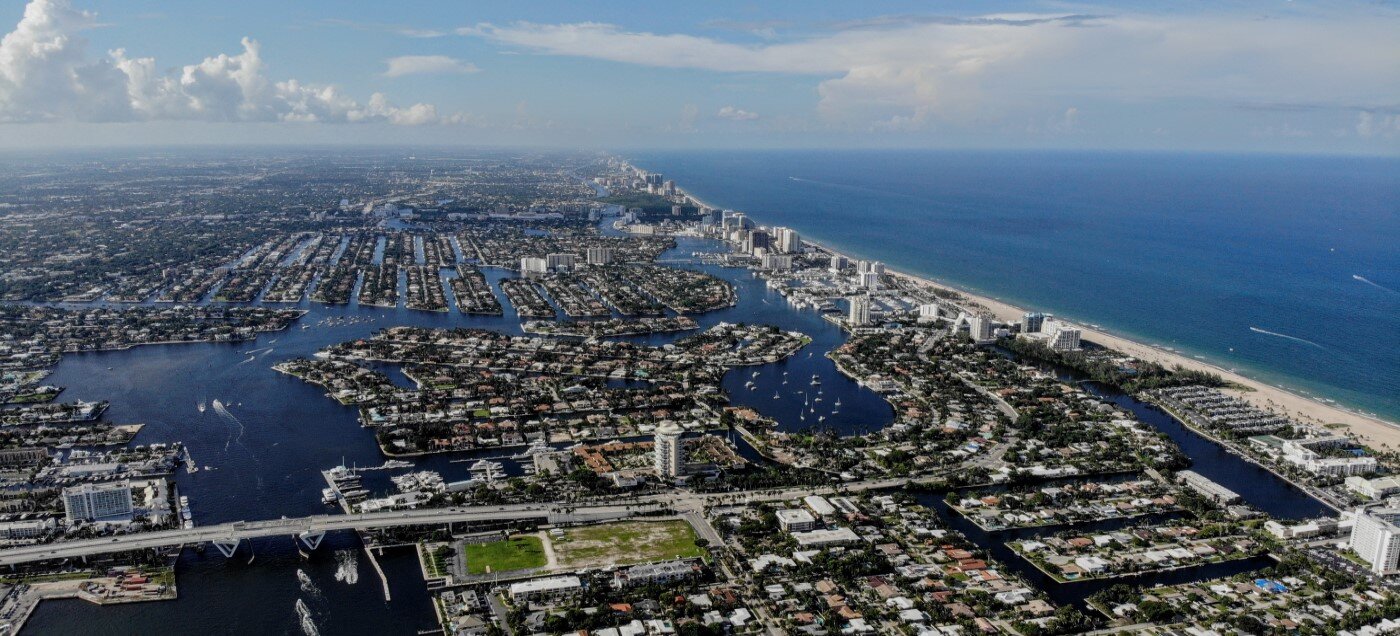Painful remedy: Fed’s interest rate hikes look to slow workers’ wage gains, cool real estate markets


Higher interest rates are slowing the housing market as the Federal Reserve focuses on stunting workers’ wage gains in the battle against high inflation.
Higher rates make mortgages more expensive and could propel a teetering U.S. economy into a recession after first quarter GDP growth was -1.4%. They also come as apartment and rental home tenants face significant increases in rents as well as persistent inflation across other spending areas such as groceries and gasoline.
“The housing market is slowing down because you are seeing high rates have an effect. That should have an effect on housing prices, perhaps even fairly quickly so that prices will not necessarily come down but price increases will flatten out. We are seeing lower home sales, lower starts. We are seeing a slowing,” said Fed Chairman Jerome Powell during a Senate Banking Committee Hearing Wednesday, June 27.
After dismissing last year’s inflation rise as transitory, the Fed has raised interest rates three time so far this year by a combined 150 basis points.
Powell, whose background is in private equity, has stressed the need to constrain workers wage gains even though inflation’s current 8.6% is outpacing wage gains came in at 4.5% to end 2021. Employers have struggled to hire and retain workers throughout the pandemic. The central bank’s inflation focus is on slowing wage growth. That worries lawmakers from both parties that the rate hikes will lead to job cuts and a recession without cutting into high prices driven by other factors.
“I know higher interest rates are painful but that is the tool we have to moderate demand and get demand and supply back in balance” said Powell of the U.S. economy facing high inflation, a potential recession and the central bank’s push against wage gains.
The Fed hopes to get inflation down to the 2% range from its current 8.6% rate — the highest since 1981.
Fiscal conservatives also pressed Powell on the large monetary and bipartisan fiscal infusions into the economy during the pandemic. U.S. Sen. John Kennedy, R-Louisiana, said the federal government has spent an additional $7 trillion on pandemic relief and the Fed’s balance sheet of assets and liabilities went from $1.5 trillion to $9 trillion, Kennedy said.
“We’ve injected all of this money into the economy,” Kennedy said during the June 22 hearing.
End of the housing frenzy
Rate hikes from the U.S. central bank have sent mortgage interest rates from the 3% range up to the 6%. That is cooling a housing market that posted robust and sometimes record sales levels and prices gains during the early stages of the coronavirus pandemic.
It was one of the many dichotomies during the pandemic with real estate investors and wealthy property owners building even more equity and profits while lower-wage restaurant, bar and other service workers lost jobs and pay.
Now, the real estate market is cooling with mortgage costs up with higher rates from the U.S. central bank
“The average monthly mortgage payment is up over 40% since the end of last year driven by higher mortgage rates and higher home prices. This affordability shock is pushing many potential homebuyers out of the market as qualifying for a mortgage has become increasingly difficult,” said Ali Wolf, chief economist for California-based real estate research firm Zonda.
Higher mortgage costs are combining with continued big increases in rents for apartments and rental homes impacting many U.S. households.
Land sales — especially in growth markets — are slowing with builders and developers putting the brakes on purchases. Banks, title companies, builders and real estate developers are also starting to lay off workers as the housing market slows.
The California Association of Realtors reported June 16 that May home sales were down 9.8% from April and 15.2% from a year ago. The real estate group said home sales volumes are at their lowest since June 2020.
Slower sales also result in more homes staying on the market longer. The Florida Realtors group reports a 31.5% increase in homes for sale inventories compared to last May.
“We actually started seeing a shift about the end of the first week of May,” said Jennifer Calenda, broker-owner of Calenda Real Estate Group in Punta Gorda. “We went from a frenzy into a little more of a normal pace here.”
Sharon Neuhofer, president of Realtors of Punta Gorda-Port Charlotte-North Port-DeSoto, said prices have “definitely been stabilizing, but it’s still a seller’s market.”
She attributed the softening in prices to the higher interest rates.
“But if a home is priced right, it will sell,” Neuhofer said, adding that if the market is not “boiling hot, it is simmering.”
High-end sales down
Luxury home sales are also slowing with higher interest rates and down U.S. stock markets taking their toll on wealthy buyers.
Real estate firm Redfin reports luxury home sales were down 17.8% between February and April 2022 compared to a year ago. Those are the most expensive 5% of homes in a given real estate market.
That includes a 27% drop in luxury home sales in Phoenix, a 33% decline in Austin, a 24% sales slowdown in Portland. New York City was the only major U.S. real estate market to see luxury sales growth (30%), according to Seattle-based Redfin.
“The pool of people qualified to purchase luxury properties is shrinking because the stock market is falling and mortgage rates are rising,” said Elena Fleck, a Redfin real estate agent in West Palm Beach, Florida. “The good news for buyers is the market is becoming more balanced and competition is easing up. Of course, that doesn’t help the scores of Americans who have been priced out altogether.”
The median price for a luxury home stands at $1.15 million nationally, according to Redfin. Those median prices include $5.5 million in San Francisco and $4 million in New York, $2.6 million in Miami, $1 million in Baltimore and $656,000 in Cleveland.
Recession looming?
While Powell and U.S. Treasury Secretary Janet Yellen hope for a soft landing for the economy, the current situation and monetary path could have consumers potentially facing high interest rates impacting housing, car loans and other financing combined with continued high inflation (including record-high gas prices and expensive grocery stores prices).
The combination could result in a slower economy but persistently high prices — the opposite of a soft landing.
A survey by California-based Freedom Financial Network found 50% of U.S. consumers would have to use credit cards or borrow money from family and friends if they are faced with an unexpected expense of $1,000 or more.
A central bank policy of stunting wage growth won’t help those consumers concerned about gasoline prices of $5 per gallon or more and double-digit prices increases for groceries and other staples.
That also includes double-digit increases in apartment rents and a shortage of affordable housing options in expensive coastal cities, rural areas and growth markets. The biggest rental increases are in Florida markets, according to CoStar Group and its Apartments.com affiliate.
“More people are living paycheck to paycheck now,” Calenda said.
An analysis by TransUnion found apartments rents were up 14% between 2020 and 2021 but tenants median incomes are up 6%. The median income for an apartment tenant is $37,232, according to the credit agency. Those income brackets feels inflation the most and could also be most impacted by higher interest rates.
The median income of apartment renters in 2020 before the COVID pandemic was $35,000, according to TransUnion.
U.S. Sen. Elizabeth Warren, D-Massachusetts, worries those households are going to feel the brunt of interest rate hikes while other drivers of inflation such as industry consolidations and the impact of Russia’s war in Ukraine and U.S sanctions will persist.
“The reason I raise this and the reason I’m so concerned about this is rate increases make it more likely that companies will fire people and slash hours to shrink wage costs. Rate increases also make it more expensive for families to do things like borrow money for a house — and so far this year, the cost of a mortgage has already doubled,” Warren told Powell during the June 22 hearing.
Warren worries the Fed could “tip this economy into a recession.”
FOX28 Spokane©


